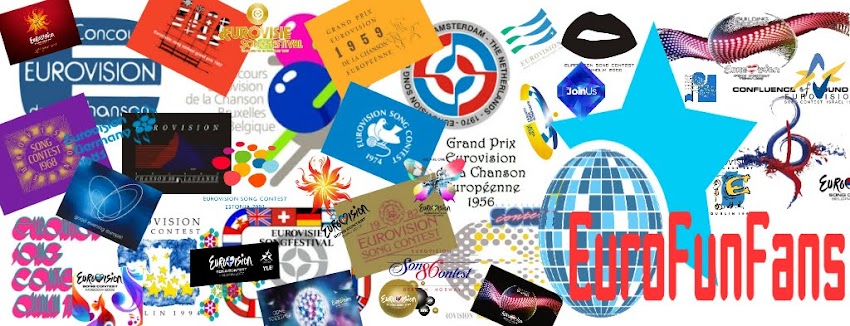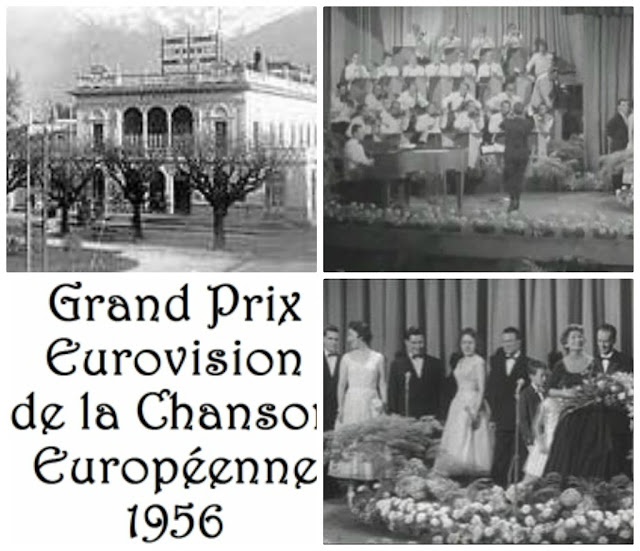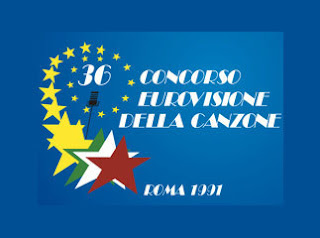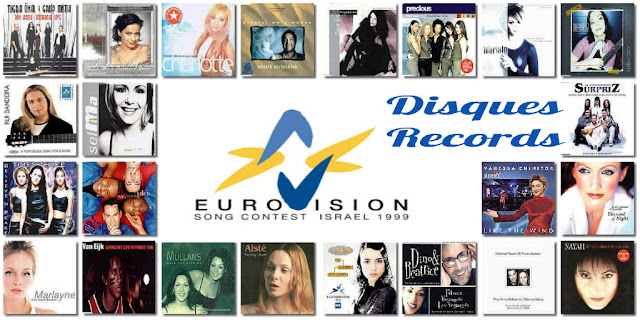Lugano
Le concours Eurovision de la chanson 1956 fut la première édition du concours. Il se déroula le jeudi 24 mai 1956, au Teatro Kuursal, à Lugano, en Suisse. Il fut remporté par la Suisse, pays hôte, avec la chanson Refrain, interprétée par Lys Assia.En 1955, les dirigeants de l’UER se réunirent à Monaco.
Ils discutèrent de la possibilité de créer un évènement permettant à la fois de populariser l’UER, de promouvoir les relations entre ses pays membres et d’employer les nouvelles ressources offertes par la télévision.Deux suggestions furent émises : un festival de cirque, sur le modèle de
celui de Monte Carlo, ou un festival de musique, sur le modèle de celui de San Remo.
Ce fut cette dernière idée qui l’emporta, donnant ainsi naissance au concours Eurovision de la chanson. Il fut finalement décidé d’en organiser la première édition à Lugano.
Sept pays participèrent au premier concours, chacun avec deux chansons.
L’Autriche, le Danemark et le Royaume-Uni auraient dû également participer. Mais ils ne purent respecter la date limite d’inscription et durent s’abstenir.
Tous trois diffusèrent cependant le concours et firent leurs débuts l’année suivante.Le programme dura près d'une heure et quarante minutes. Ses règles étaient assez différentes de celles actuellement en vigueur.
Ainsi, seuls des artistes en solo furent admis à concourir.
Toute chorégraphie était interdite. Et surtout, chaque pays put présenter deux chansons. Ce dernier point fut rendu nécessaire par le petit nombre de participants : à peine sept.
L’orchestre était dirigé par Fernando Paggi et comportait vingt-quatre musiciens.La scène était fort simple.
Elle se composait d'un parterre de fleurs sur le devant et d'un drapé en arrière-fond. L'orchestre était placé à gauche et les artistes, à droite.
Quatorze chansons participèrent au premier concours.
Les chansons devaient durer au maximum trois minutes trente secondes. Aucune règle concernant la langue des chansons n’avait été fixée.
Chaque pays recourut pourtant à ses langues nationales. La moitié des chansons (sept sur quatorze) furent interprétées en français.
La représentante néerlandaise, Jetty Paerl, ouvrit le spectacle avec De vogels van Holland, la toute première chanson présentée au concours.
The Eurovision Song Contest 1956 was the first edition of the contest. It took place Thursday, May 24, 1956, at the Teatro Kuursal in Lugano, Switzerland. It was won by the host country Switzerland with the song Refrain, perIn 1955, the leaders of the EBU met in Monaco.
They discussed the possibility of creating an event for both to popularize the EBU to promote relations between its member countries and to use the new resources offered by television.
formed by Lys Assia.
Two suggestions were made: a festival of circus, modeled on that of Monte Carlo, or a music festival, modeled on the one in San Remo.
It was this last idea prevailed, giving rise to the Eurovision song.
It was finally decided to organize the first edition in Lugano.
Seven countries participated in the first contest, each with two songs.
Austria, Denmark and the United Kingdom have also had to participate.
But they could not meet the deadline and had to abstain.
All three, however, diffused the contest and made their debut the following year.
The program lasted about an hour and forty minutes. Its rules were quite different from those currently in force.
Thus, only solo artists were allowed to compete.
All choreography was prohibited. And most importantly, each country could have two songs.
This last point was made necessary by the small number of participants: only September
The orchestra was led by Fernando Paggi and had twenty-four musicians.
The scene was very simple. It consisted of a bed of flowers on the front and a draped background. The orchestra was placed on the left and the artists right.
Fourteen songs participated in the first contest.
The songs should last a maximum of three minutes and thirty seconds. No rules for the language of the songs had been set.
Each country nevertheless resorted to its national languages. Half of the songs (seven out of fourteen) were interpreted in French.
The representative Dutch Jetty Paerl, opened the show with vogels In Holland, the first song presented for the contest.
Eurovision 1956 - Winner Switzerland
















